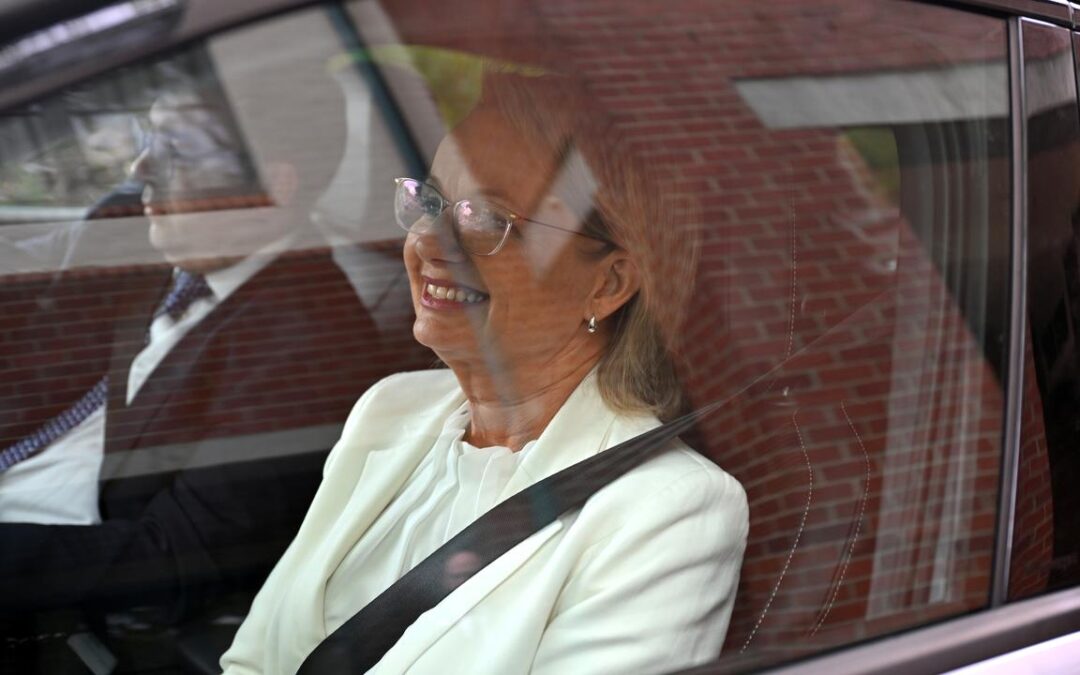
Liberals to meet in nation’s capital for net-zero fight
Liberal MPs will descend on Canberra as their divided party is poised to ditch its pledge to achieve net-zero emissions by 2050.
The Liberals’ formal position on the climate target will be finalised following mid-week meetings in the nation’s capital, with the party to negotiate a single policy with the Nationals in the days to follow.
Infighting over the issue has intensified, placing further pressure on Opposition Leader Sussan Ley’s leadership since the Nationals announced their position ahead of their coalition colleagues.
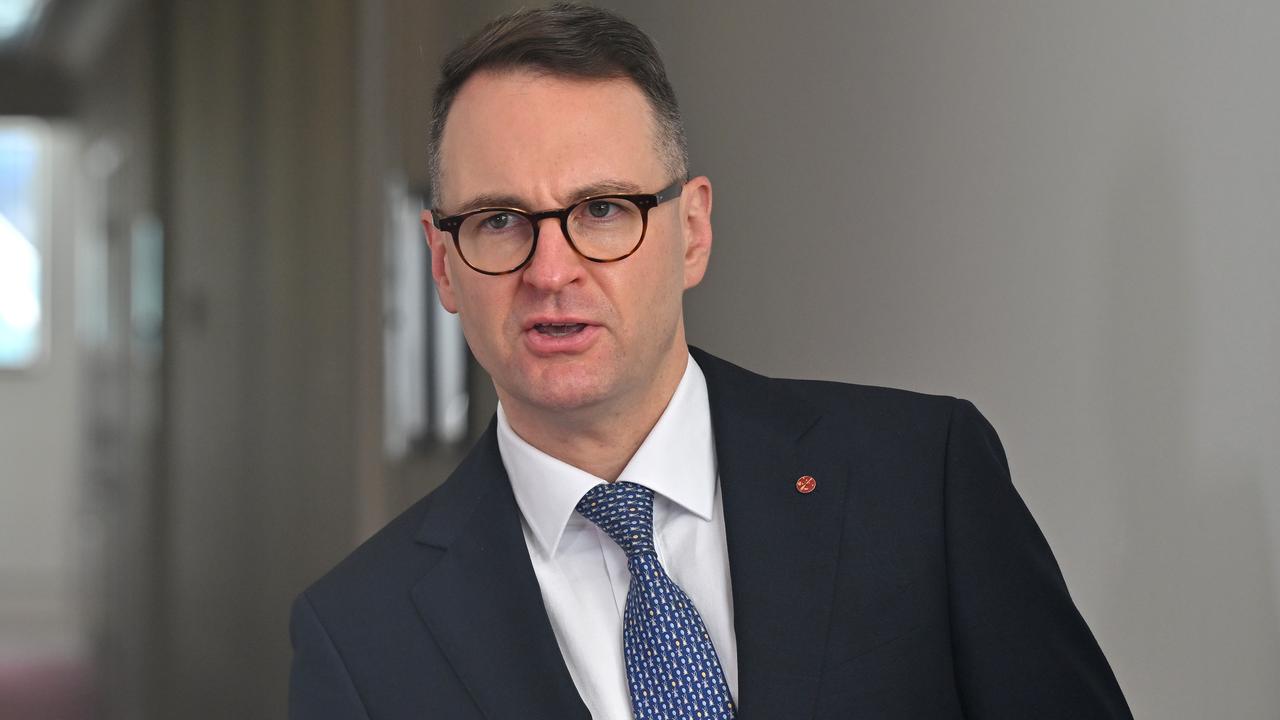
Liberal frontbencher and moderate Andrew Bragg on Sunday flagged he would be open to quitting the shadow cabinet if his party decided it would pull out of international climate change treaty the Paris Agreement.
He reaffirmed his support for lowering emissions, saying there could not be a “fatwa” on words – referring to net zero.
“I don’t imagine that we would ever leave Paris. I mean, we’re a party of government … we’re not fringe dwellers,” he told the ABC’s Insiders.
“Most Australians want us to play our fair role in terms of emissions reduction.”
Under the Paris Agreement, signed in 2015, members are required to increase their emissions targets every five years and cannot water down their goals.
Amid speculation another Liberal might follow suit, moderates are attempting to hammer out a deal that stays within the Paris Agreement and keeps some form of commitment to net zero, even if the initial 2050 deadline is dropped.
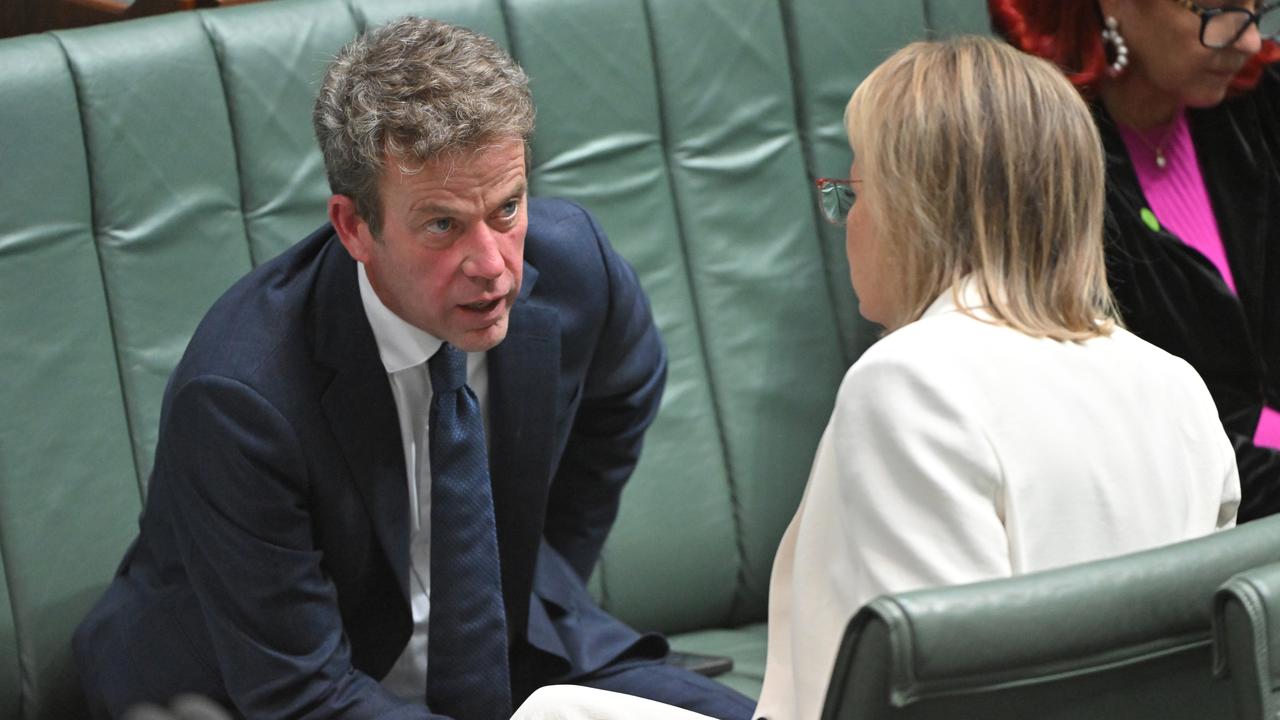
Liberal senator Andrew McLachlan, a self-described conservationist, said the review process had to run its course, and his party would soon have a position to negotiate with the National Party.
The long-awaited review, led by opposition energy spokesman Dan Tehan, will be thrashed out during a meeting of Liberal politicians on Wednesday.
Mr Tehan said subsidies could be offered to keep current coal-fired power plants operating for longer, and would be discussed at the meeting.
Asked if the opposition would back financial support for coal plants, he said it was crucial to work with the states to ensure the energy source remained in the mix to bring power prices down.
Former prime minister Scott Morrison committed the coalition to the net-zero emissions target in 2021.
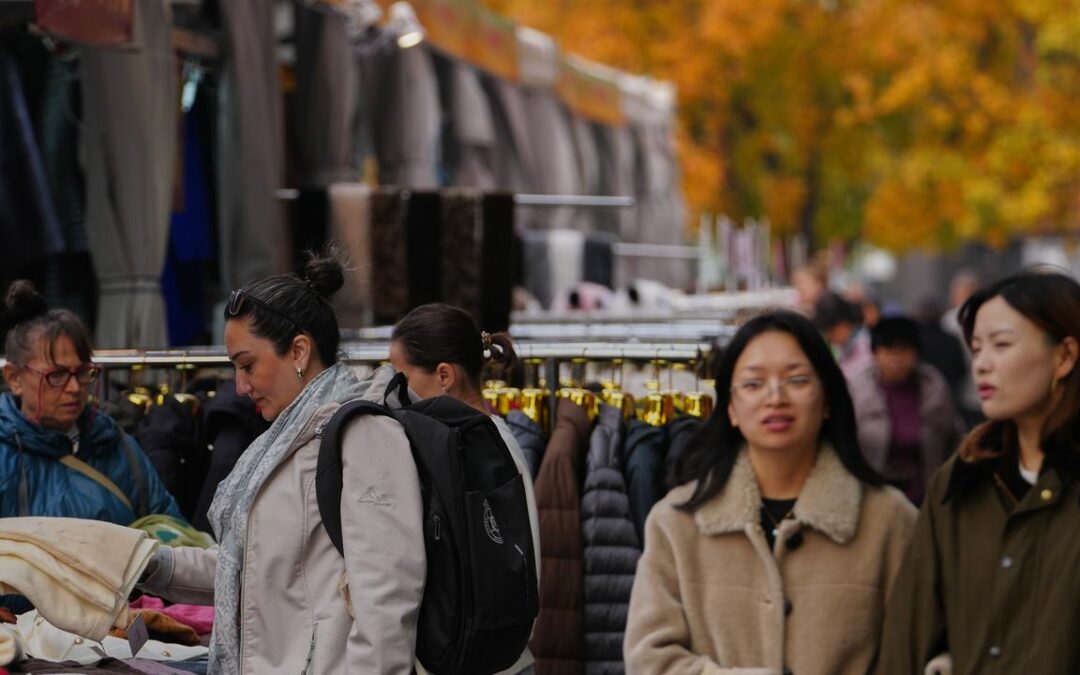
China’s factory-gate deflation eased in October
China’s producer price deflation eased in October and consumer prices returned to positive territory, as the government steps up efforts to curb over-capacity and cut-throat competition among firms.
Despite the improvement in headline numbers, analysts warn that deflationary pressures on the world’s second-largest economy are not yet over, and the government may have to roll out additional policy measures to spur demand.
“Demand remains weak but a rebound in CPI indicates that supply-side policies are having an effect, and the supply-demand balance in many industries is improving,” Xu Tianchen, senior economist at the Economist Intelligence Unit said on Sunday.
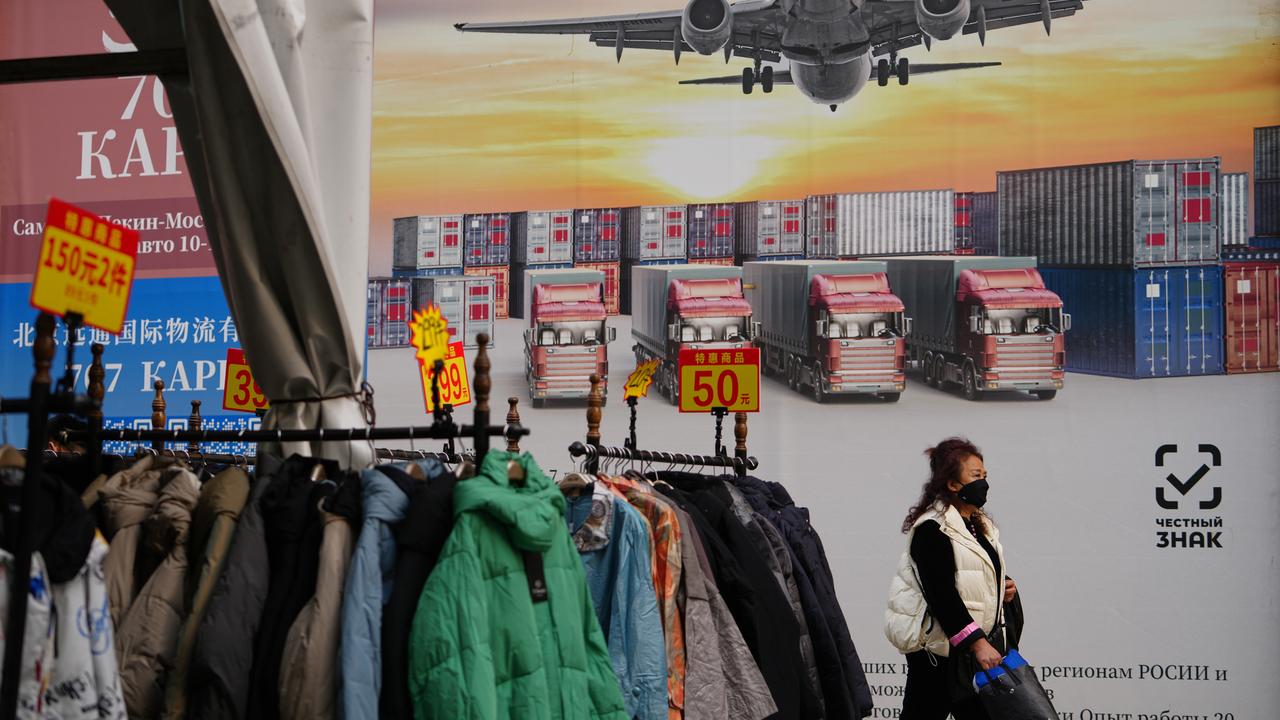
“The future trend of inflation will depend on how much demand-side policies are strengthened.”
The producer price index fell 2.1 per cent in October from a year earlier, National Bureau of Statistics (NBS) data showed, compared with an expected 2.2 per cent decline in a Reuters poll of economists. The index has remained negative since October 2022 and dropped 2.3 per cent in September.
NBS statistician Dong Lijuan said capacity management in key industries has narrowed year-on-year producer price declines. In coal mining and washing, the price drop narrowed by 1.2 percentage points and price falls in photovoltaic equipment, battery, and automobile manufacturing narrowed by 1.4, 1.3, and 0.7 percentage points, respectively.
Consumer prices edged up 0.2 per cent from a year earlier, reversing a two-month decline and beating the estimate for no change.
Against the previous month, CPI rose 0.2 per cent in October after rising 0.1 per cent in September and compares with a forecast of no change.
Core inflation, which excludes volatile prices of food and fuel, was up 1.2 per cent year-on-year in October, quickening from the one per cent increase in September and hitting a 20-month high.
Food prices fell 2.9 per cent year-on-year, after dropping 4.4 per cent in September.
The October price figures indicate that government efforts to rein in excessive competition have helped stabilise prices, but lukewarm domestic demand and geopolitical tensions continue to cloud the business outlook.
“It is too early to conclude the deflation is over,” said Zhiwei Zhang, president and chief economist at Pinpoint Asset Management.
“We need to wait for a few more months of data to judge if the deflation dynamic has changed fundamentally.”
China’s economic growth slowed to its weakest in a year in the third quarter, and the youth unemployment rate remained elevated despite a dip in September.
Policymakers have refrained from aggressive stimulus this year, with the central bank keeping interest rates steady for five months, partly due to resilient exports following a trade truce with the United States.
China has recently unveiled some fiscal and quasi-fiscal policy support measures, but analysts remain divided on whether the central bank will implement further easing measures, such as interest rate cuts, by the end of the year.
China’s economy is on track to meet the government’s target of around five per cent growth this year, but producer deflation, as well as downbeat factory activity and an expected contraction in exports in October, indicate waning growth momentum.
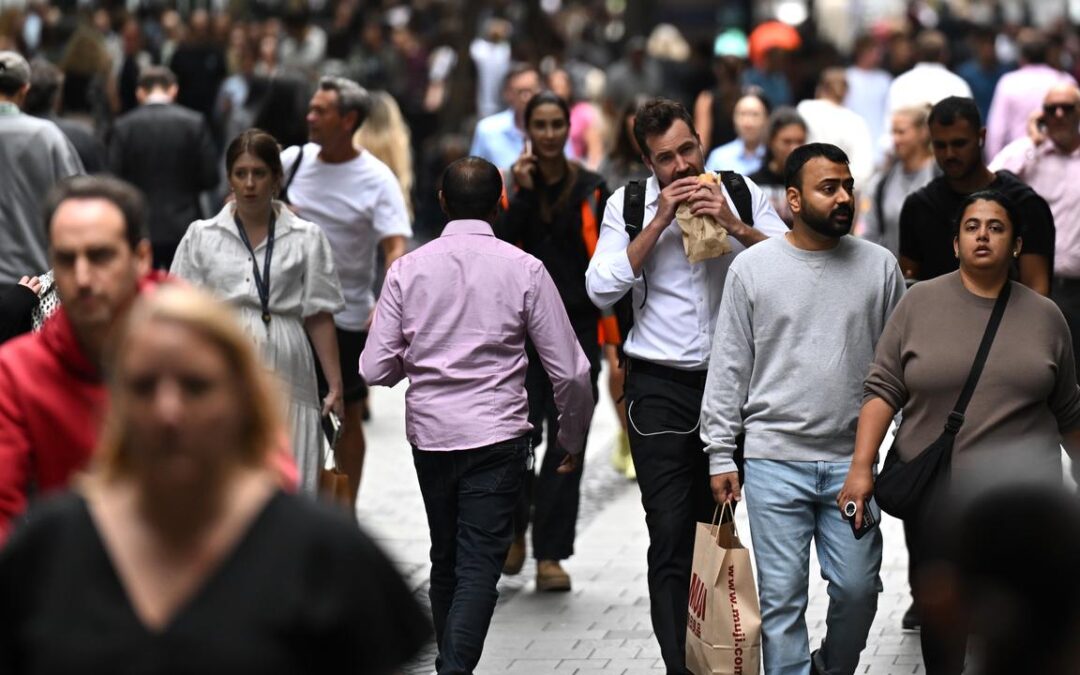
Economy heads for first major test since RBA rate hold
Job figures are set to take centre stage as economists continue to mull whether borrowers have seen their last Reserve Bank rate cut this cycle.
In the first major piece of economic data since the RBA left interest rates on hold last week, the unemployment rate is expected to tick back down to 4.4 per cent when October numbers are released by the Australian Bureau of Statistics on Thursday.
The central bank painted a bleak picture of Australia’s economic outlook on Tuesday, with updated forecasts revealing underlying inflation was expected to stay above its target band until at least mid-2026.
With the inflation dragon proving more untamed than had been hoped, governor Michele Bullock conceded it was possible there were no more rate cuts coming down the pike.
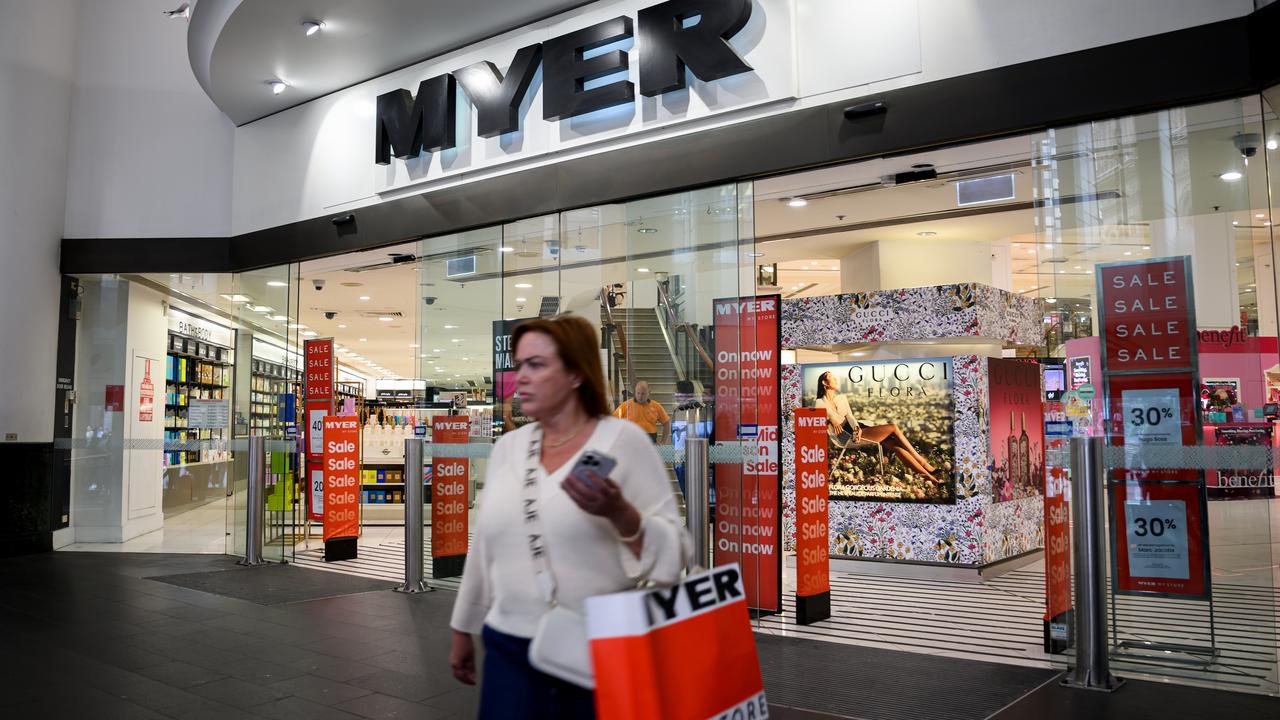
One scenario that could force the RBA’s hand into lowering rates further is if the jobs market suddenly deteriorates.
The bank’s staff forecast the unemployment rate to fall from its current rate of 4.5 per cent to 4.4 per cent and stay there for the next two years.
The jobless rate has been steadily rising since the start of the year but surged 0.2 percentage points in September.
While the rate is expected to retrace some of that increase, it’s more down to the volatile nature of the figures, rather than an indication the labour market is becoming tighter, AMP economist My Bui said.
“Employment gains will likely remain weak at just 18,000 with a participation rate still around historical high of 66.9 per cent,” Ms Bui said.
On Monday, RBA deputy governor Andrew Hauser will deliver a speech at the UBS Australasia Conference in Sydney.
As the bank’s second-highest ranking official, his comments will be closely watched. But with no major data developments since Ms Bullock’s post-meeting press conference, his remarks are expected to largely follow the governor’s lead.
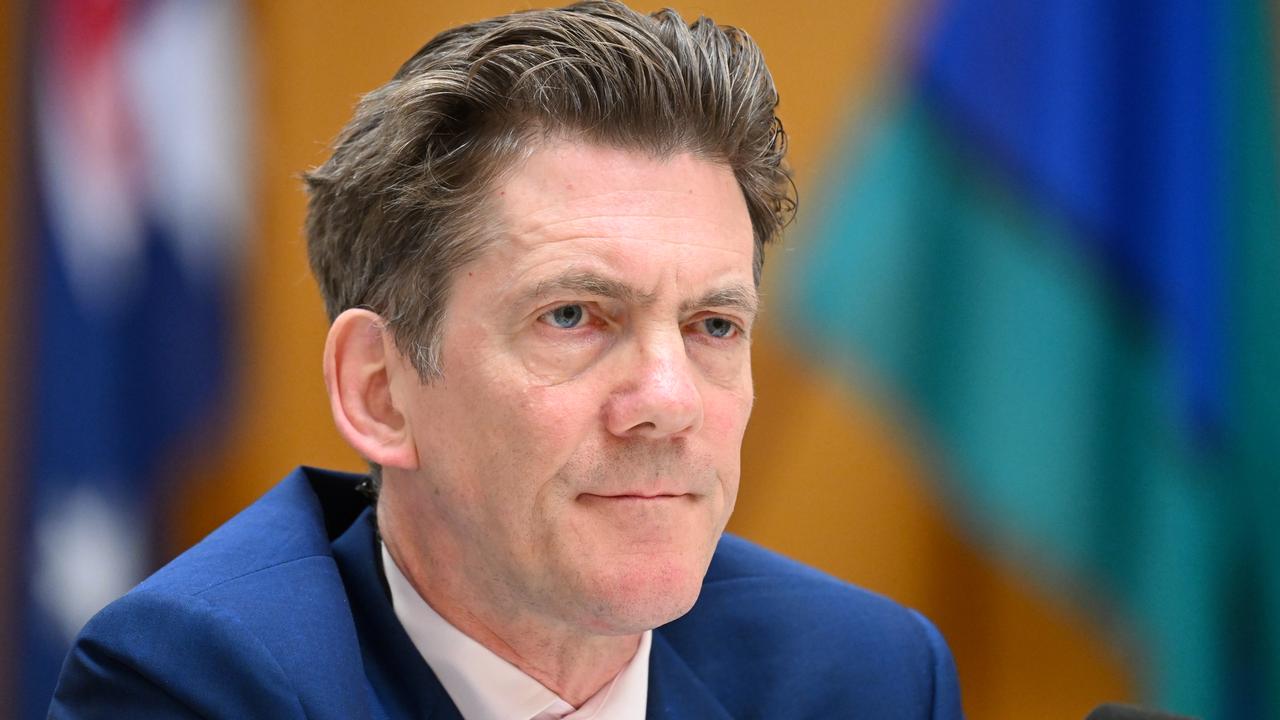
Later on Monday, policy makers will get an updated insight into consumer and business confidence.
Westpac and the Melbourne Institute release their latest consumer sentiment index, while NAB will publish its latest business survey.
ANZ senior economist Adelaide Timbrell said she will be closely watching the survey for price indicators to get a read on the future path for inflation.
Household lending data will be released by the ABS on Wednesday.
Ms Bui expects home loan values to have edged up 0.2 per cent during the three months to September 30, as lower sales volumes and limited listings offset a strong rise in property prices.
Investors have meanwhile turned the page on a roller-coaster week on Wall Street, with economic worries, the longest-ever federal government shutdown and sky-high tech stock valuations dampening risk appetite.
However losses shrank significantly late on Friday following reports of progress on the congressional impasse which has resulted in the marathon shutdown.

The S&P 500 gained 8.52 points, or 0.13 per cent, to end the day at 6,729.02 points, while the Nasdaq Composite lost 47.87 points, or 0.21 per cent, to 23,006.12. The Dow Jones Industrial Average rose 76.28 points, or 0.16 per cent, to 46,988.58.
Australian share futures climbed 17 points, or 0.19 per cent, to 10,470.
The S&P/ASX200 fell 58.6 points on Friday, down 0.66 per cent, to 8,769.7, as the broader All Ordinaries lost 66.9 points, or 0.74 per cent, to 9,031.7.
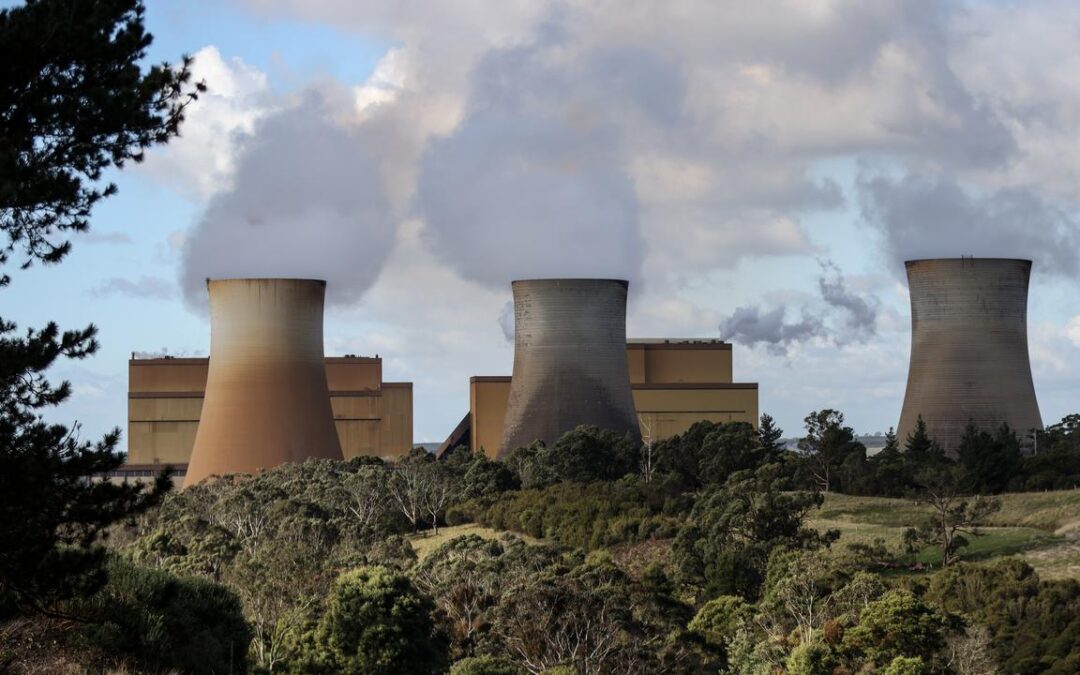
Coalition to look at coal subsidies, stick with nuclear
Subsidies could be on offer to extend the lives of coal-fired power plants, while nuclear is likely to feature in the opposition’s long-awaited climate and energy policy.
Political infighting within the coalition has intensified over the Liberals’ commitment to a target of reaching net-zero emissions by 2050, a position the party is poised to follow junior partner the Nationals in dumping.
The Liberal Party’s formal position on the climate target will be decided following meetings in Canberra mid-week.
But opposition energy spokesman Dan Tehan flagged subsidies could be offered to keep current coal-fired power plants operating for longer, while he also backed ramping up gas supplies.
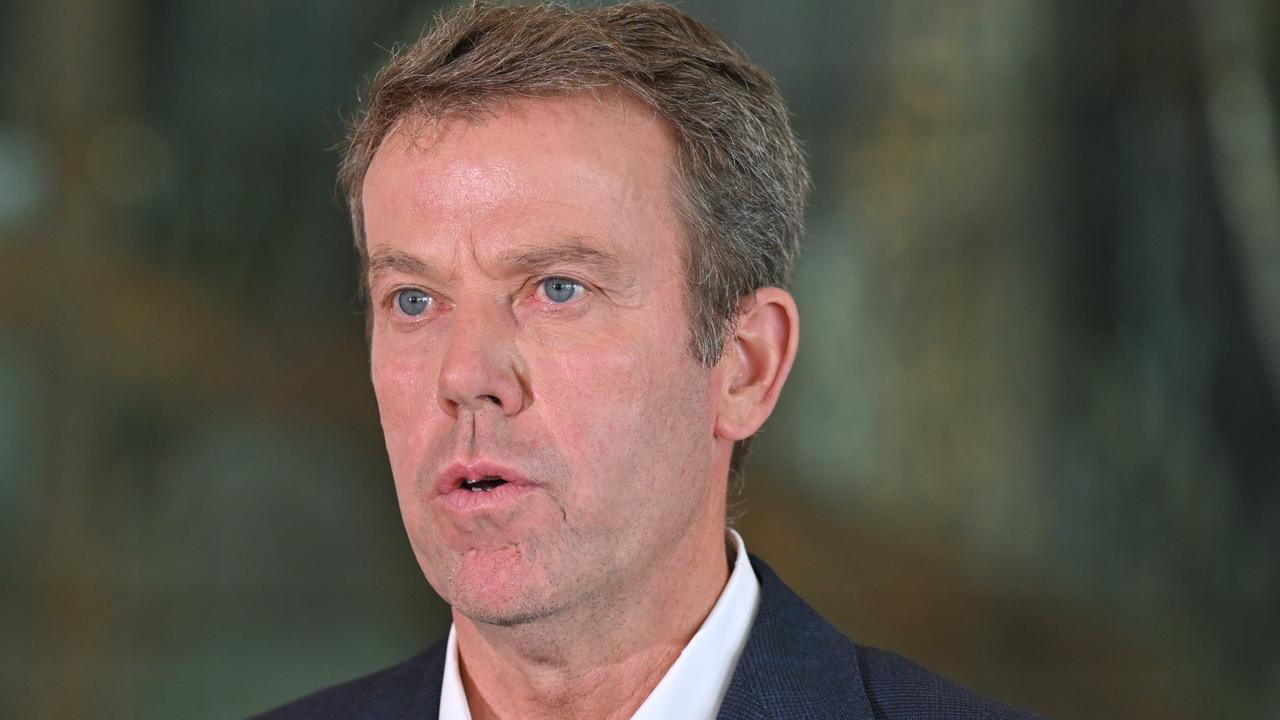
“We need to make sure that we’re sweating those coal assets … and also that we can get more gas into the system much more quickly,” he told Sky News on Sunday.
When asked if the opposition would support subsidies for coal plants, Mr Tehan said those discussions would take place and it was “absolutely crucial” to work with the states to ensure the fossil fuel would stay in the system to bring power prices down.
The NSW Labor government in 2024 moved to extend the life of Australia’s largest coal-fired power station, Eraring, while the Queensland Liberal National government wants to continue running coal plants until 2046.
Mr Tehan also foreshadowed the Liberals would continue their pre-election policy of supporting the development of nuclear power plants.
“Absolutely we want to see a nuclear policy, and we’ve already committed, through the coalition agreement to lifting the ban, and that will be very much part of the discussions we have,” he said.
Removing a federal ban on nuclear power in Australia, introduced under the Howard coalition government in the late 1990s, was a condition to mending the split between the Nationals and Liberals following the disastrous May election.
Pressure has been mounting on Opposition Leader Sussan Ley’s leadership over net-zero policies, which have divided moderate and conservative members of her party, while the coalition has been left reeling by a series of dire polls.
Mr Tehan backed Ms Ley when asked if she was up to the job.
“The majority in the party room said … she was the person that should lead us to the next election,” he said.
“Let’s make sure that after the worst election defeat that we have suffered since the Second World War, that we start to get a policy platform that we can enunciate and take to the Australian people.”
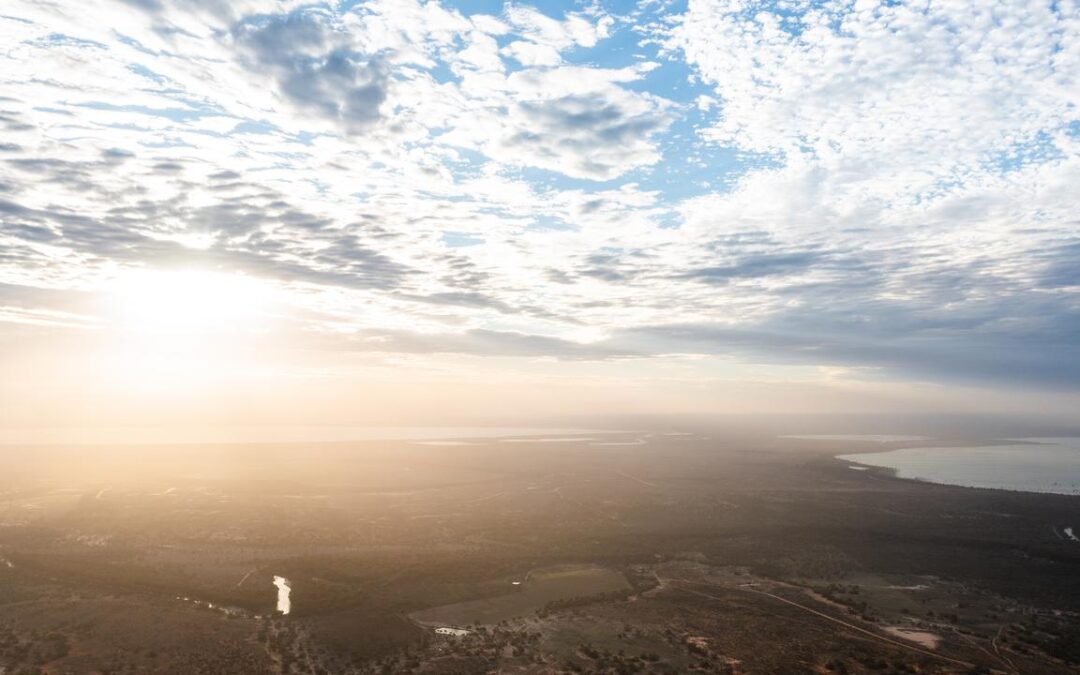
‘We can’t accept this’: no time for climate COP out
At the gateway to the Amazon, politicians, diplomats, scientists, business leaders and non-governmental organisations are gathering to talk climate change.
The rainforest city of Belem is a symbolic choice for Brazil, keen to draw attention to a flagship fund that rewards countries for keeping carbon-absorbing forests intact.
Hosting tens of thousands of delegates in the small city has been a logistical headache, prompting a scramble to source enough beds.
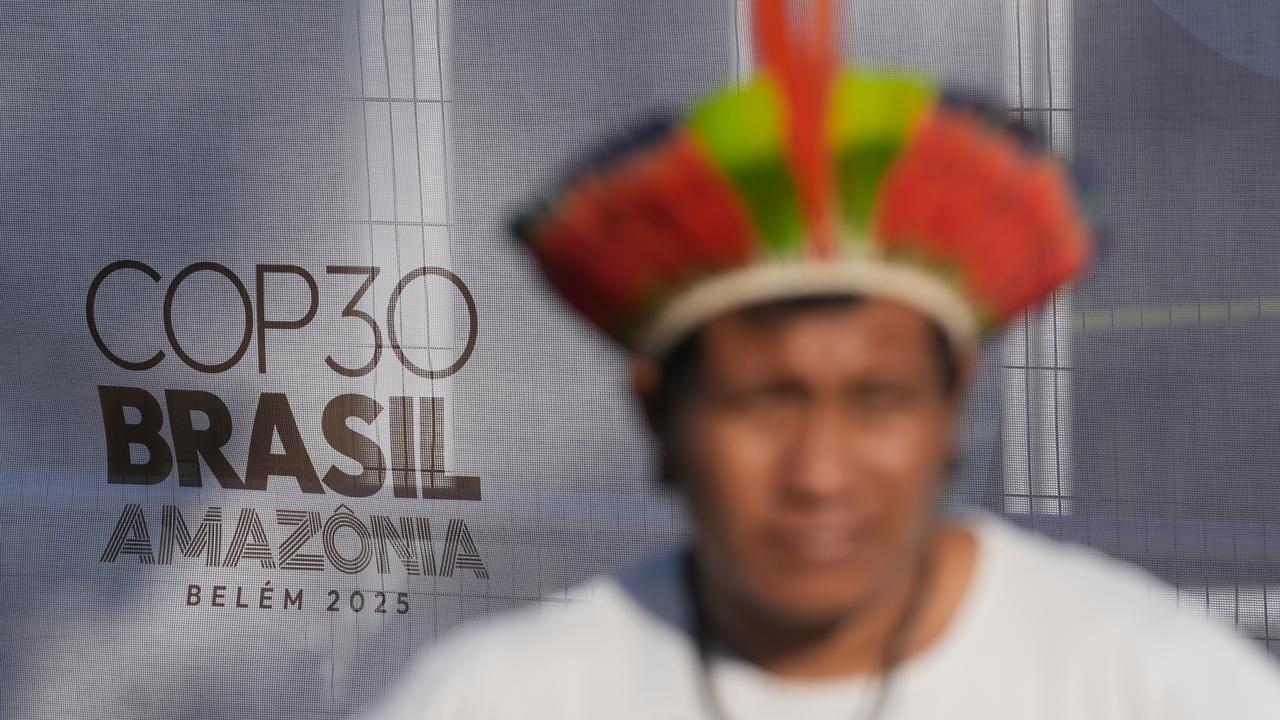
However, the Brazilian government pressed ahead with the host town, a choice designed to centre the Amazon – known as the “lungs of the world” – and its First Nations custodians.
Richie Merzian, chief executive officer of the Clean Energy Investor Group and a veteran of COP summits, says Brazil’s determination is an apt analogy for global climate action.
“There are all these dramas, but, you know, almost every country in the world is sticking with it,” he tells AAP.
The international pursuit of global warming no higher than 1.5C from pre-industrial levels, or well below 2C, is off track.
The United Nations’ environmental body warns overshooting 1.5C is “very likely” this decade, a situation UN secretary-general Antonio Guterres describes as “deadly negligence”.
“Driving down emissions to curb the magnitude and duration of overshoot has never been more urgent,” he told leaders meeting in Belem ahead of the formal Conference of the Parties summit, COP30, opening on Monday.
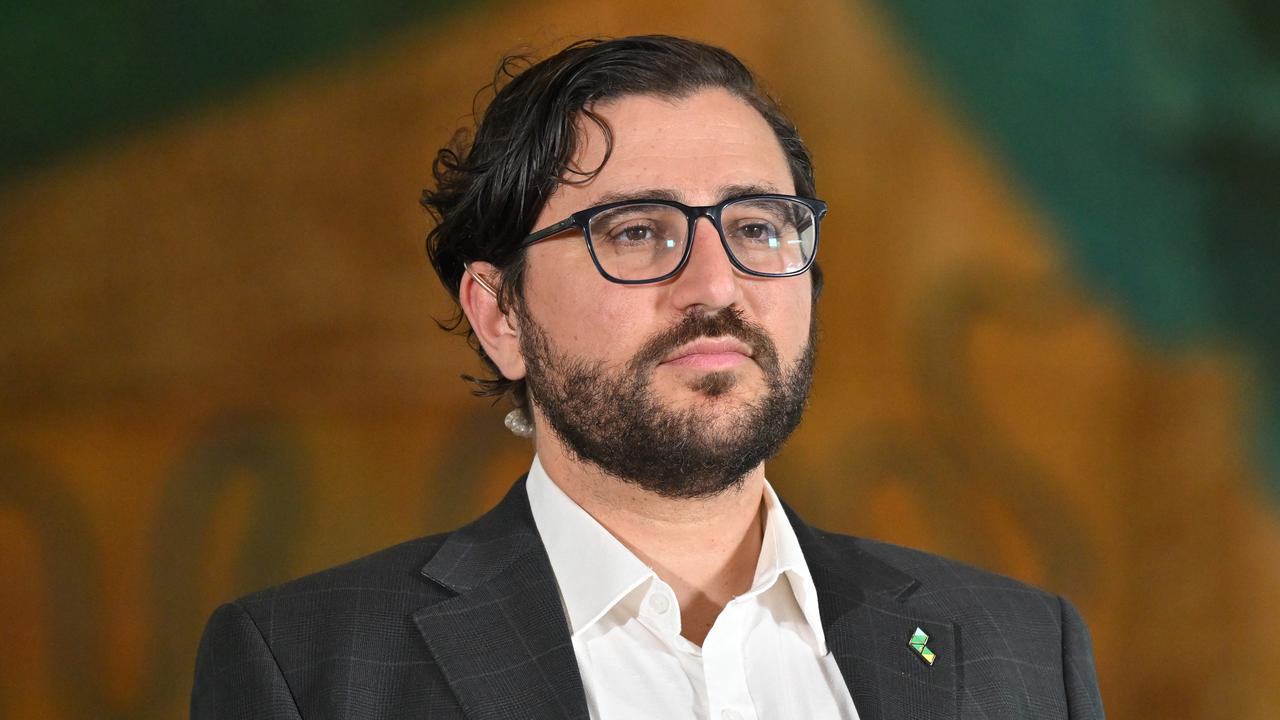
This year is set to be the second or third warmest year on record, the World Meteorological Organization warned in its annual climate update ahead of the conference.
The hard truths have been delivered against a politically challenging backdrop for climate co-operation, underscored by the United States’ exit from the Paris Agreement, the global pact seeking to limit temperature rise to well below 2C.
The US was notably absent from the two-day gathering of heads of state, as were China and India, which together make up the world’s top three polluters.
Independent economist and Climate Councillor, Nicki Hutley, says the US government’s pullback from climate action is not ideal.
“But it is not the end of climate negotiations,” she tells AAP ahead of her trip to Belem.
Expect America’s sub-national governments to play a larger role, she says, and European countries to hopefully step up at the nation-state level.
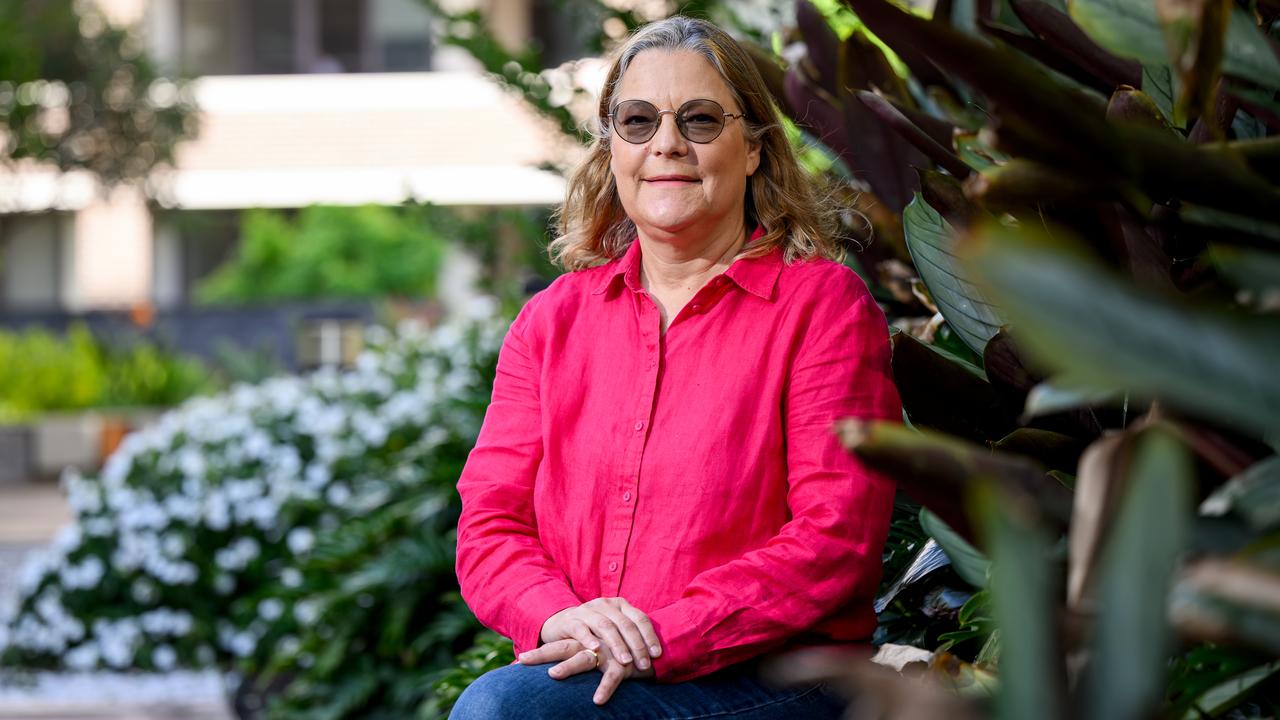
China will also be worth watching, she says, as despite its emissions profile, it has shackled its economic and strategic future to clean industries such as electric vehicles.
The gap between national climate commitments and aspirational temperature goals is expected to dominate the two-week summit, along with discussions on adaptation, deforestation and climate finance to help poorer countries transition.
It has also been dubbed the “implementation COP”.
Smart Energy Council chief executive officer John Grimes describes it as a “retaking of control” on climate outcomes, particularly at the sub-national, state and city levels.
“If you were to design a process to get effective and quick outcomes, you would not design a UN-based process,” he tells AAP.
Mr Grimes, who is attending the summit, wants to use the opportunity to frame up Australia’s leadership in distributed energy resources, namely rooftop solar and batteries installed by households and small businesses.
Managing millions of distributed energy resources and integrating them with power grids has been a technical challenge that has spawned notable domestic innovation.
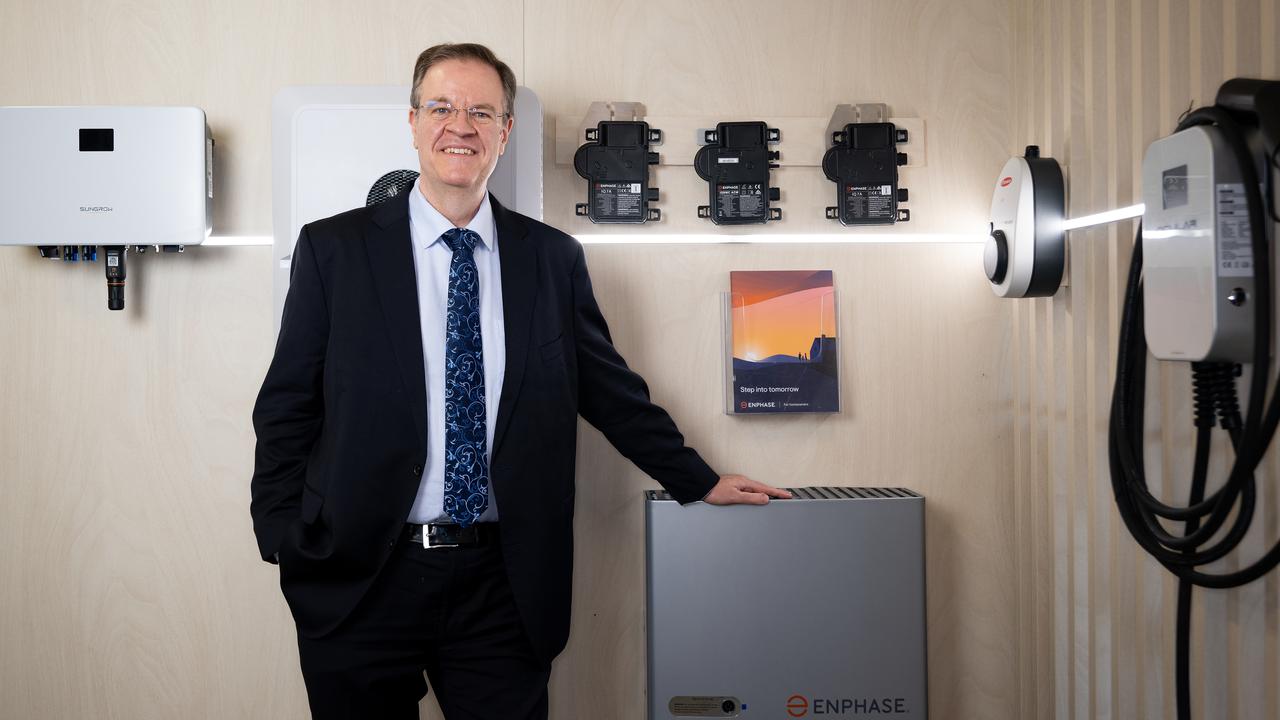
“We should be racing to really understand that, to capture that intellectual property, and then to have solutions we can take to the entire world,” he tells AAP.
UN climate summits now function as giant trade shows for low-carbon industries as well as hosting state-level negotiations.
The fate of Australia’s joint bid to co-host the next climate summit with Pacific island states can also be expected to be sealed at the Brazil talks.
Turkey remains in the race and no venue has been decided for the massive event with just 12 months to go.
Mr Merzian says Australia could play a role in formal negotiations again, with Federal Climate Minister Chris Bowen serving as a co-chair on finance discussions in Azerbaijan in 2024.
“Australia’s got a great story to tell,” Mr Merzian says.
He listed “practical but ambitious” emissions-reduction targets and sector plans, as well as inroads on managing a just transition that does not leave coal mining communities behind.
Belem will also be the first COP since the International Court of Justice’s landmark advisory opinion on climate change.
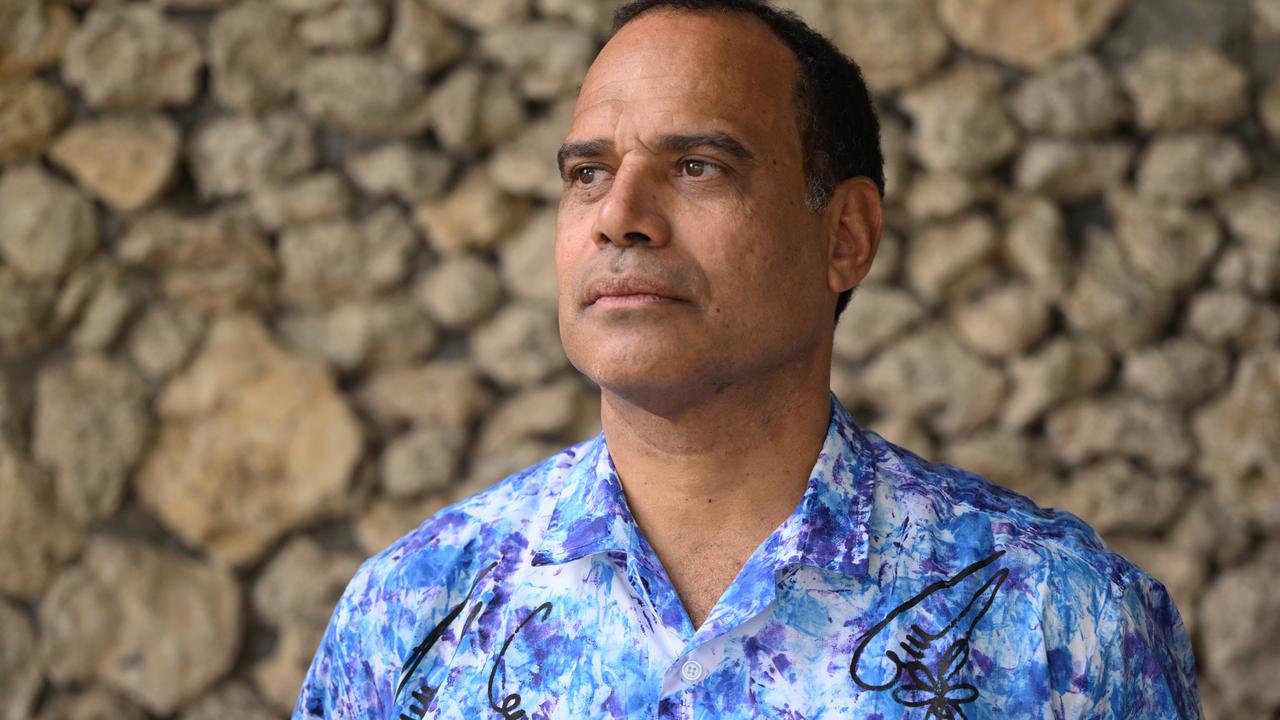
Vanuatu Climate Change Minister Ralph Regenvanu, who helped spearhead the World Court campaign, will be looking to socialise the advisory opinion at the summit, including the court’s warning a failure to curb the production and consumption of fossil fuels might constitute an “international wrongful act”.
“Unfortunately, we have low expectations of COP,” he told a briefing last week, citing a reluctance by states to reference the court’s opinion.
Australia has been transitioning away from fossil fuel use domestically but remains a significant exporter of coal and gas to other countries.
Those looking for guidance on international climate ambition should pay heed to the final text and whether 1.5C remains, Ms Hutley says.
The growing risk of 1.5C overshoot is no reason to give up, she stresses, with every fraction of a degree important at a time of destructive floods and fires and tropical coral reefs reaching a tipping point.
“We can’t accept this. We just can’t accept it,” she says.
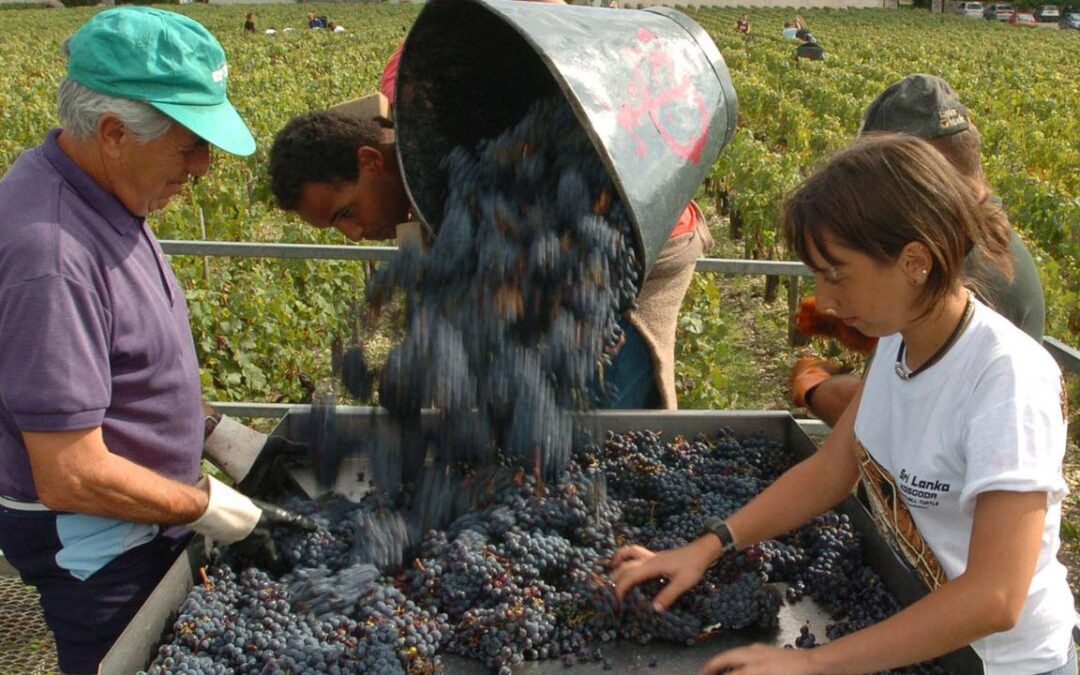
France’s 2025 wine output forecast at historic lows
France’s farm ministry has raised its projection for this year’s wine output to 36.2 million hectolitres, which makes it unchanged from last year’s historically low output, as a summer heatwave and drought reduced harvest volumes.
The projected harvest is 16 per cent below the five-year average, marking the second consecutive year of significantly reduced yields.
“The harvest is over and the impact of the August heatwave on grape volumes is clear,” the ministry said in a report.
Extreme heat and persistent drought in August accelerated grape ripening and dried out fruit, leading to earlier harvests and smaller yields across the country, it said.
France is the world’s second-largest wine producer after Italy and the leading exporter by value. Its wine output has been hit by adverse weather in the last two years while surplus management policies have prompted winemakers to uproot a portion of their vineyards.
Champagne production is expected to rise 14 per cent year-on-year to 2.1 million hectolitres, though it remains 10 per cent below the five-year average. The ministry cited good grape quality but lower volumes for certain grape varieties.
A hectolitre is the equivalent of 100 litres, or 133 standard wine bottles. In Bordeaux, output is likely to remain slightly below last year, but 17 per cent below average, constrained by the uprooting of 8,000 hectares of vineyards and the lingering effects of the heatwave.
Charentes, a key Cognac-producing area, also faces a small decline in output, but dry and hot weather hurt yields, with the harvest seen 23 per cent below the five-year average.
Output in Languedoc-Roussillon – the largest producing region – fell severely due to drought, fires, and the uprooting of 10,000 hectares since last year, the ministry said. Output is expected to drop eight per cent from 2024, now down 18 per cent on average.
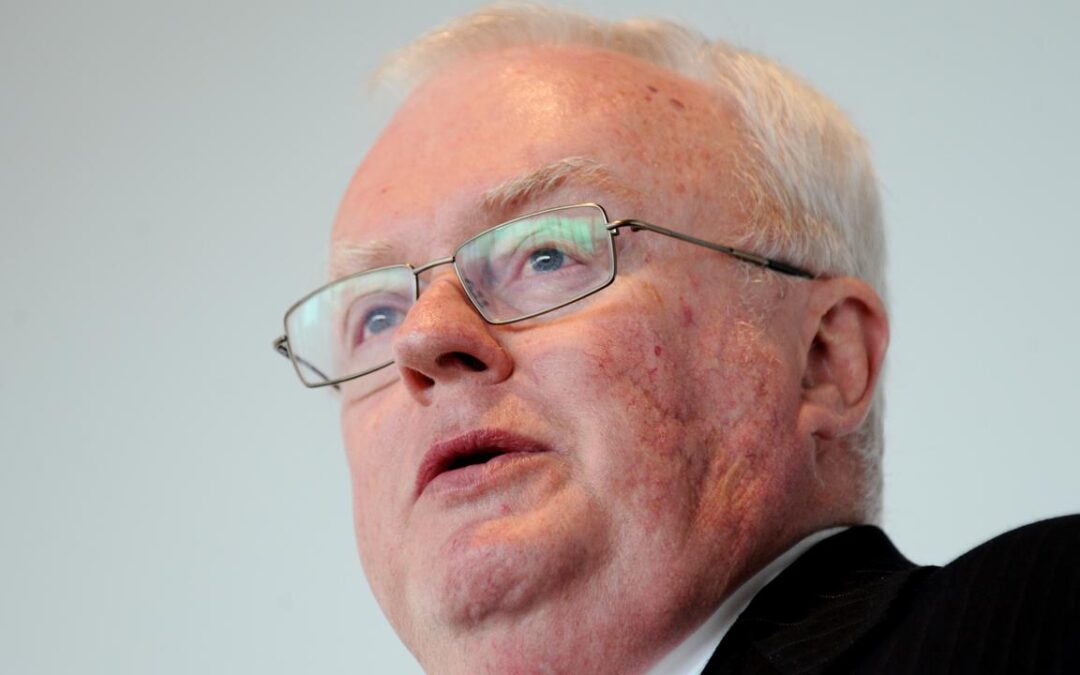
Labor heavyweight Graham Richardson dies aged 76
Former Labor powerbroker turned media commentator Graham “Richo” Richardson has died aged 76.
The death of the key federal factional leader in the Hawke-Keating years was confirmed on Sydney talkback station 2GB on Saturday by broadcaster Ben Fordham.
Mr Richardson passed away after a bout of influenza and pneumonia, his family told the breakfast host who announced the news.
“Darcy and Amanda have asked me to share the news with everyone, and sadly, Richo has passed away in the early hours of this morning, Fordham said.
“This has come as a huge shock to me.”
The former senator played a major role in the factional stability enjoyed for most of the nine years of Bob Hawke’s government before he threw his support behind Paul Keating.
He also became an advocate for nature and as environment minister, fought hard to save forests and halt polluting development.
Mr Richardson’s later years were dominated by health battles with chondrosarcoma, a rare form of cancer.
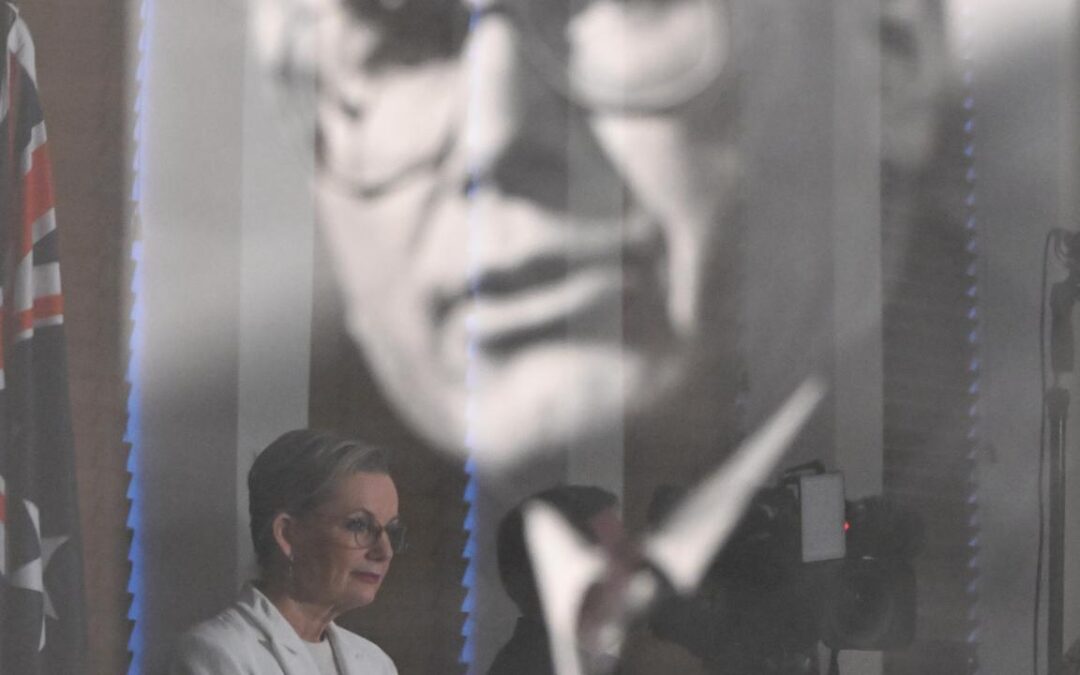
Howard blasts ‘foolish’ comments, backs in Sussan Ley
Former prime minister John Howard is urging the Liberal Party to “get behind” Sussan Ley as political infighting threatens to end her leadership of the coalition.
The opposition leader on Friday was again forced to bat away questions surrounding her job, declaring she was not “commenting on commentary” after Liberal senator Sarah Henderson said Ms Ley was losing the party’s support.
Internal division over the commitment to net-zero emissions by 2050, as well as polling this week showing the coalition’s primary vote dropping to a record-low 24 per cent, has heightened the pressure on Ms Ley.
Asked if the Liberal leader would survive, Mr Howard said he believed she should.
“I haven’t been a member of parliament for almost 20 years – long time – and the world has changed, but I think Sussan Ley has got to be given a go,” he told AAP.
“And my request to the colleagues is to give her that go, get behind her.”
The former prime minister, who served who four terms in the top job before losing the 2007 election to Labor’s Kevin Rudd, said keeping the coalition with the Nationals was “integral to success”.
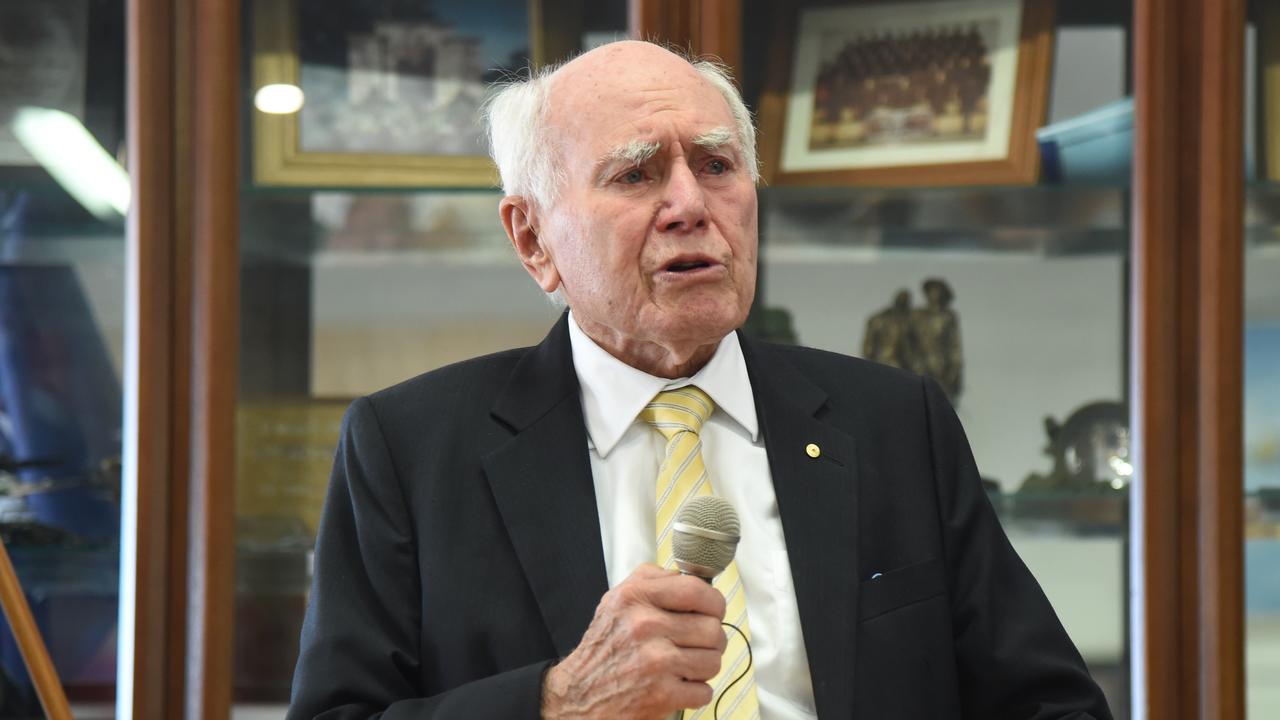
Mr Howard said it was foolish to say the party was in the worst state it had ever been.
“The Liberal Party is going through a bad phase, but if it … focuses on policy and working out quickly what it believes in and stands for, and then resumes the task of arguing and persuading, it can recover,” he said.
“But if it spends all its time on internal bickering, it won’t.
“People who are forecasting its demise have not understood the lessons of history.”
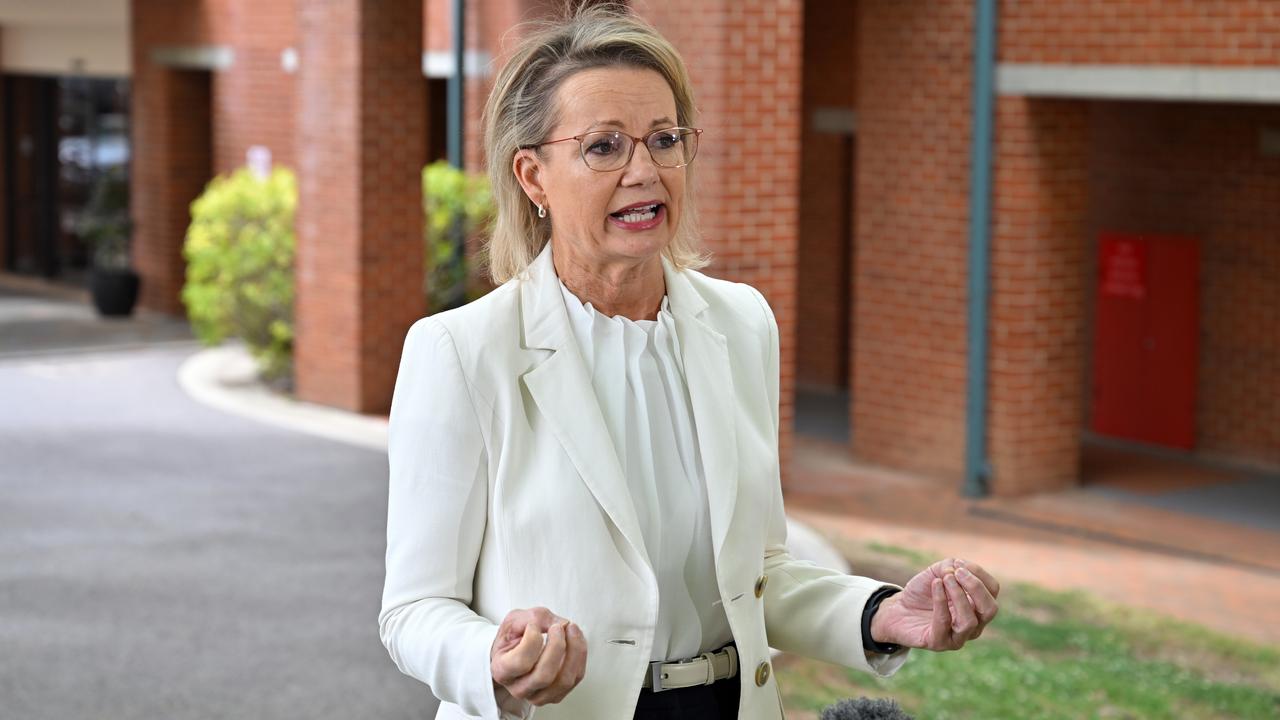
Ms Ley has been the leader of the Liberals for about six months.
Alexander Downer held the leadership of the party for the shortest time to date, serving in the role for eight months.
Senator Henderson, an opponent of net zero who was removed from shadow cabinet after the election, on Friday stopped well short of endorsing the opposition leader.
“I do think Sussan is losing support, but I do believe in miracles,” she told Sky News.
“We can turn things around, but things are not good. I don’t support things the way they are.”
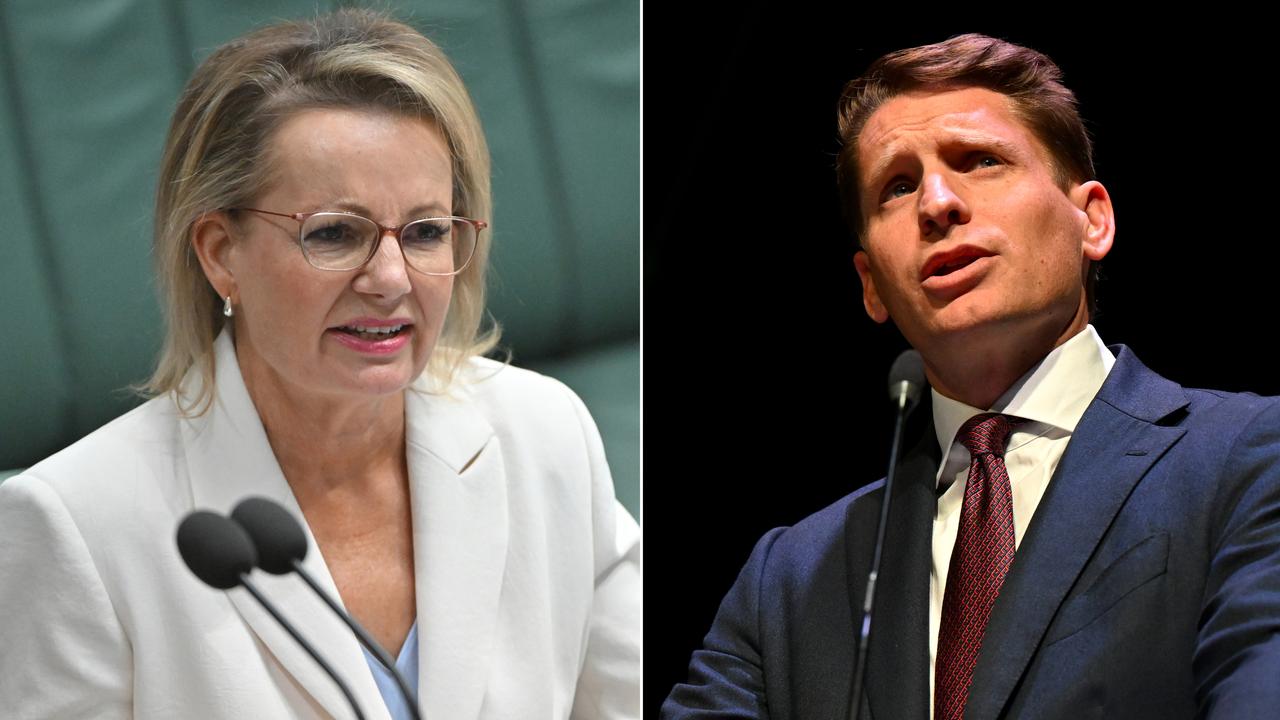
The opposition leader’s two main rivals, Angus Taylor and Andrew Hastie, have both called for the net zero target to be ditched.
Redbridge Group director and former Victorian Labor strategist Kos Samaras said poor polling was a reflection of the “numerous conservative coalition MPs who have been freelancing policy ideas since they lost”.
“Sussan Ley has very, very little responsibility for what has actually happened … the very individuals who are criticising her are the ones who actually have driven the numbers down,” he said.
The Liberal Party’s position on the key climate target will be decided following meetings in Canberra next week.
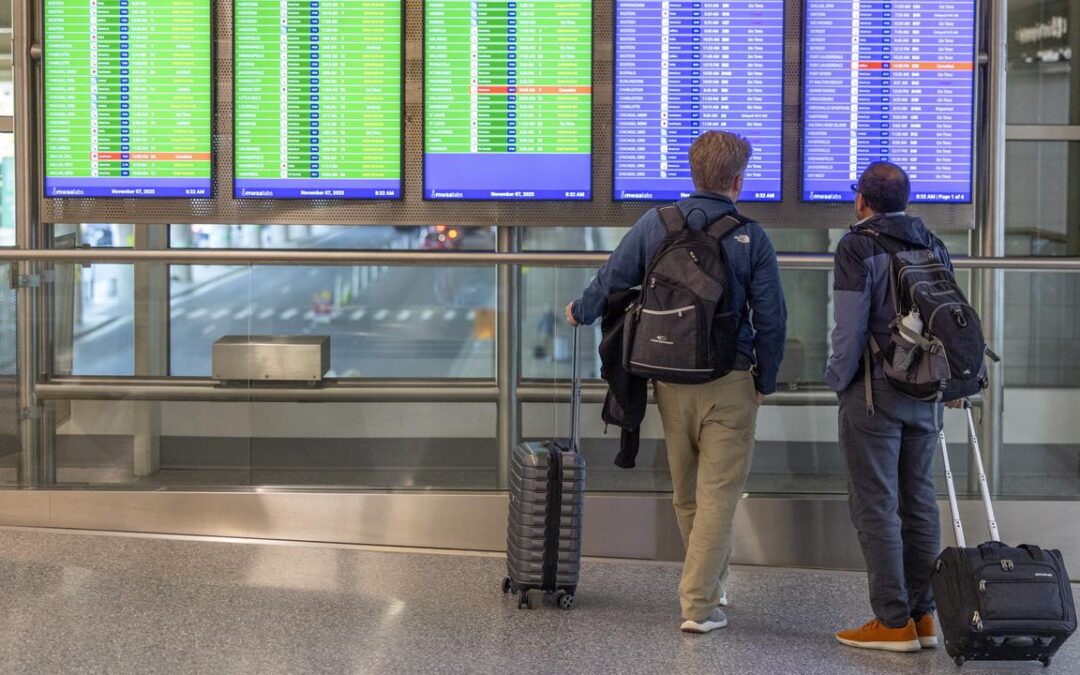
Travellers face cancelled flights over US shutdown
Hundreds of flights have been cancelled across the US as airlines begin complying with the Federal Aviation Administration’s unprecedented order to scale down routes nationwide because of the government shutdown.
While the agency order left some passengers scrambling to figure out backup plans, most were relieved to find their planes still on schedule as airlines slowly phased in reductions at the nation’s busiest airports.
The 40 airports selected for the slowdown span more than two dozen states and include hubs such as Atlanta, Dallas, Denver, Los Angeles and Charlotte, North Carolina.
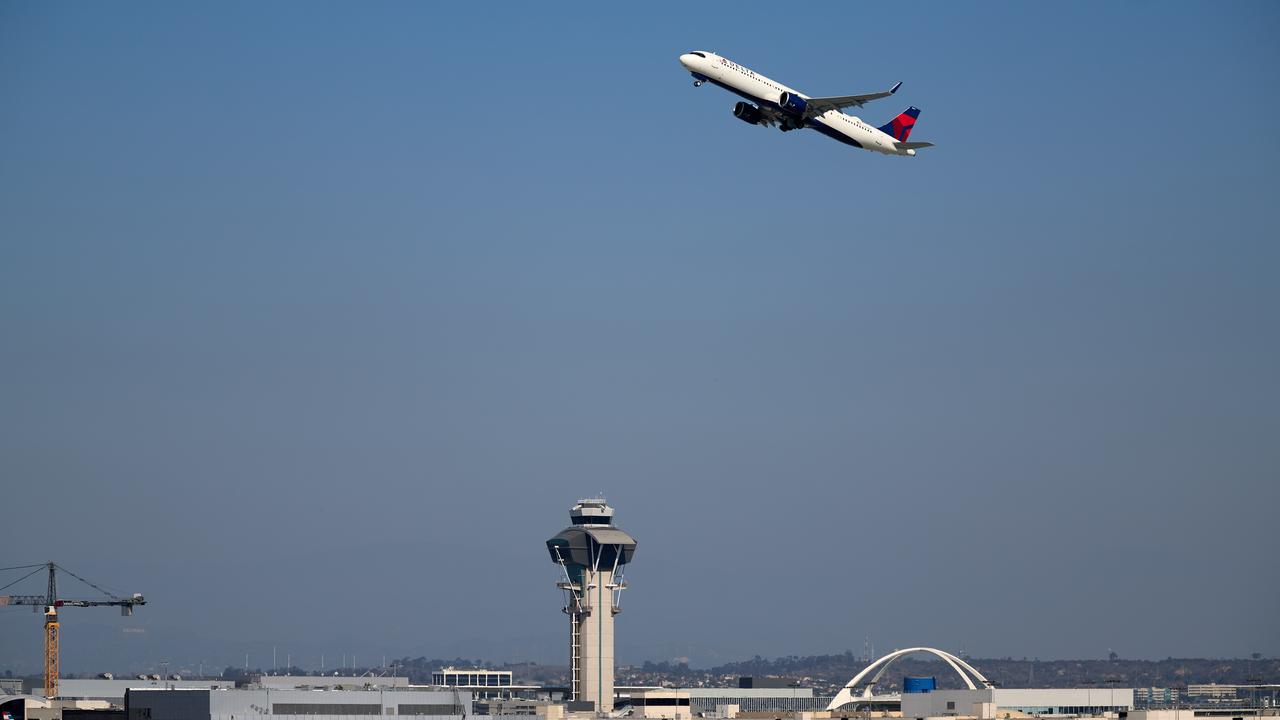
More than 800 flights were called off nationwide — four times the number cancelled Thursday, according to FlightAware, a website that tracks flight disruptions.
Airports in Chicago, Atlanta, Denver, Dallas and Phoenix led the way with the most disruptions, FlightAware said.
Not all travellers were fortunate, though.
Karen Soika from Greenwich, Connecticut, found out Friday morning that her flight out of Newark, New Jersey, was rebooked for an hour earlier.
But she later learned her plane was actually leaving from New York’s John F Kennedy International Airport, instead, at least an hour away.
“I’m a surgeon, I’m used to chaos,” she said.
Airlines hurried to adjust their schedules and began cancelling flights on Thursday, while travellers waited nervously to learn if their flights would take off as scheduled.
“We are operating today over 6000 flights,” David Seymour, chief operating officer for American Airlines, told ABC.
“Now we’ve had to cancel as part of this directive 220 flights today and that will be the same number through the weekend, until we start ramping up. We have been working tirelessly throughout, around the clock, to ensure that we’re minimising the disruption to our customers.”
Delta Air Lines said it would scratch roughly 170 flights on Friday, while American planned to cut 220 each day through Monday.
Airlines directed passengers with plans into the weekend to check apps to learn their flight status.
Some passengers quickly searched for alternatives.
Hertz reported a sharp increase in one-way car rentals.
Many of the routes slashed on Friday were shuttle flights in the Northeast and Florida, along with those between Dallas and smaller cities, according to aviation analytics firm Cirium.
Authorities say the reductions are starting at four per cent of flights at the busiest airports and will ramp up to 10 per cent a week from Friday.
They will impact all commercial airlines.
Savanthi Syth, an airline analyst for Raymond James, said right now is a slower season for travel, so that means the airlines should be better able to rebook passengers on other flights.
The biggest airlines expect there will be limited disruptions this weekend and stressed that international flights are not expected to be affected.
But the upheaval will intensify in the coming days and could become chaotic if the slowdown extends into the Thanksgiving holiday, just weeks from now.
Even after the slowdown ends, it will take days to return to normal.
The agency said the cuts are necessary to relieve pressure on air traffic controllers who have been working without pay for more than a month.
Many are pulling six-day work weeks with mandatory overtime, and increasing numbers of them have begun calling out as the financial strain and exhaustion mount.
The order comes as the Trump administration ramps up pressure on Democrats in Congress to end the shutdown.
Ending the shutdown would ease the situation for controllers, but the FAA said the flight cuts will remain in place until their safety data improves.
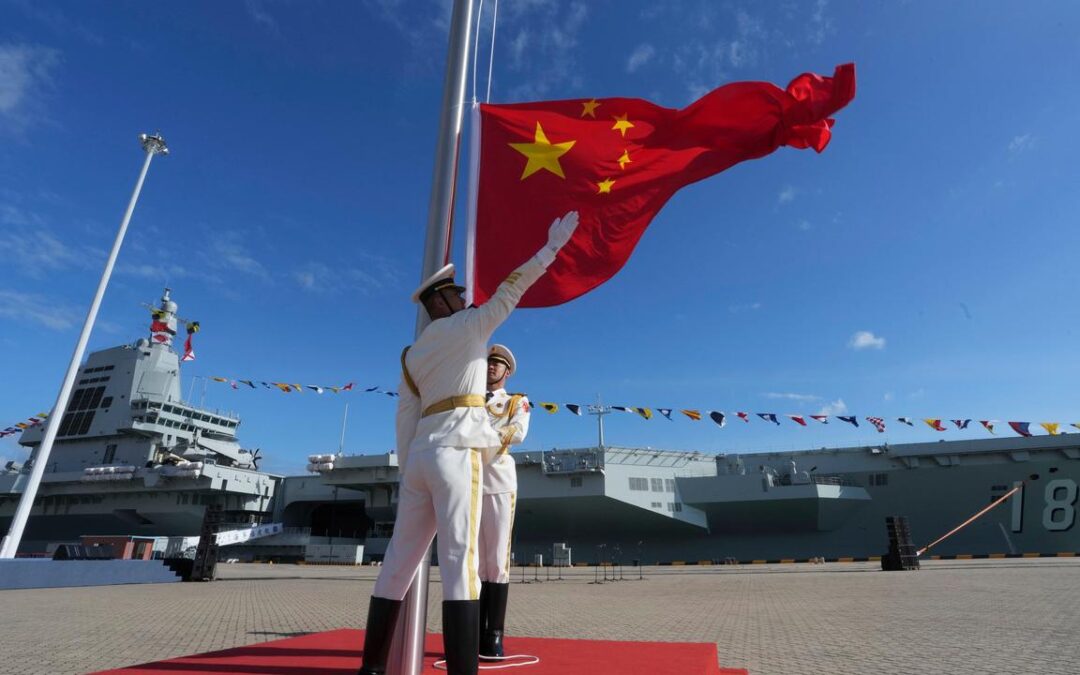
China to project power with the new aircraft carrier
China has commissioned its latest aircraft carrier after extensive sea trials, adding a ship that experts say will help what is already the world’s largest navy expand its power farther beyond its own waters.
The official Xinhua news agency said the Fujian had been commissioned on Wednesday at a naval base on southern China’s Hainan island in a ceremony attended by President Xi Jinping.
The Fujian is China’s third carrier and the first that it both designed and built itself.
It is perhaps the most visible example so far of Xi’s massive military overhaul and expansion that aims to have a modernised force by 2035 and one that is “world class” by mid century — which most take to mean capable of going toe-to-toe with the United States.
With it, Beijing takes another step toward closing the gap with the US Navy and its carrier fleet and network of bases that allow it to maintain a presence around the world.
“Carriers are key to Chinese leadership’s vision of China as a great power with a blue-water navy,” or one that can project power far from its coastal waters, said Greg Poling, director of the Asia Maritime Transparency Initiative at the Centre for Strategic and International Studies.
China wants to contest waters as far as Guam.
For China’s navy, one goal is to dominate the near waters of the South China Sea, East China Sea and Yellow Sea around the so-called First Island Chain, which runs south through Japan, Taiwan and the Philippines.
But deeper into the Pacific, it also wants to be able to contest control of the Second Island Chain, where the US has important military facilities on Guam and elsewhere, Poling said.
“A carrier doesn’t really help you in the First Island Chain, but it’s key to that contest, if you want one, with the Americans in the wider Indo-Pacific,” Poling said.
China’s “increasingly capable military” and ability to “project power globally” are reasons the Pentagon, in its latest report to Congress continued to call it “the only competitor to the United States with the intent and, increasingly, the capacity to reshape the international order”.

At the same time, it is Beijing’s right to “transform its navy into a blue-water strategic navy commensurate with China’s national strength,” said Song Zhongping, a Hong Kong-based military affairs expert.
“China’s carriers cannot just operate near home; they must operate in the distant oceans and far seas to carry out various training and support missions,” Song said.
“China is a great power and our overseas interests span the globe; we need to be globally present.”
News that the Fujian had been commissioned was met with wariness in nearby Japan.
Minoru Kihara, a former defence minister and now chief cabinet secretary in Prime Minister Sanae Takaichi’s new government, said it underscores that China is “extensively and rapidly strengthening its military power without transparency”.
“We believe that China’s military intends to advance its operational capability at distant sea and air by strengthening sea power,” he told reporters.
He emphasised that Japan was watching China’s military activity and would “calmly but decisively respond” if necessary.
One possibility that raises concerns in foreign capitals is a possible Chinese blockade or invasion of the democratically self-governed island of Taiwan, which China claims as its own territory and which leader Xi Jinping, has not ruled out taking by force.

Though the island sits right off of China’s coast, if China had the ability to position an aircraft carrier group or groups around the Second Island Chain — between Taiwan and the US Pacific Fleet headquarters in Hawaii — that could delay possible American military assistance in the event of a Chinese attack.
“They want those aircraft carriers to play a part in kind of extending the strategic perimeter further out from China, and one of the important things that an aircraft carrier can do is extend the range of China’s domain awareness to keep an eye on activities in the air, on the sea, and below the sea,” said Brian Hart, deputy director of CSIS’s China Power Project
With the Fujian, China’s warplanes could deploy far from its shores.
China’s first aircraft carrier, the Liaoning, was Soviet made and its second, the Shandong, was built in China but based on the Soviet model.
Both use older-style ski-jump type systems to help planes take flight.
The Fujian skips past the steam catapult technology used on most American carriers to employ an electromagnetic launch system found only on the latest US Navy Ford-class carriers.
The system causes less stress to the aircraft and the ship, allows for more precise control over speed and can launch a wider range of aircraft than the steam system.